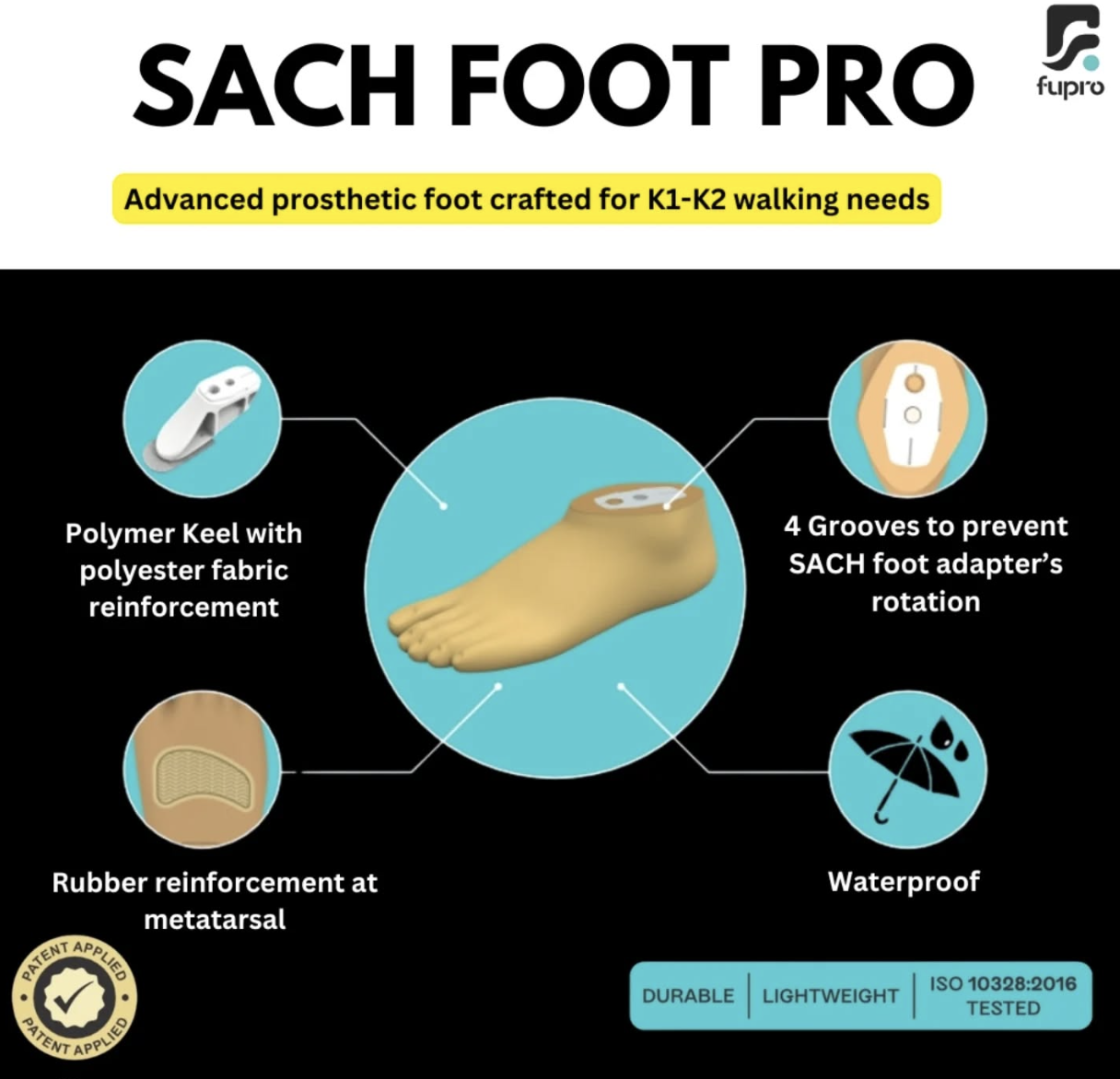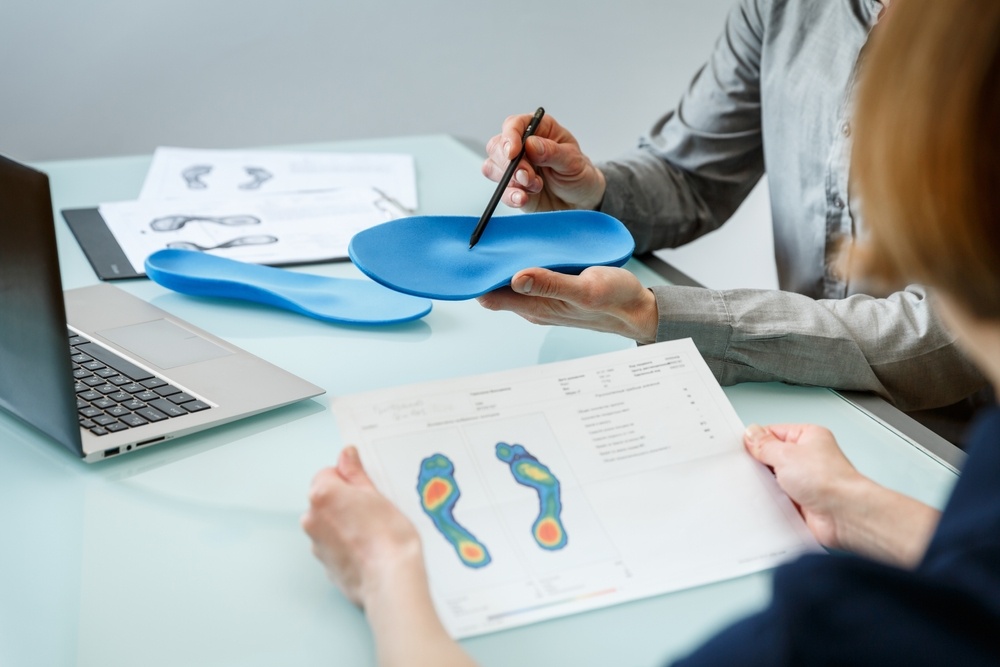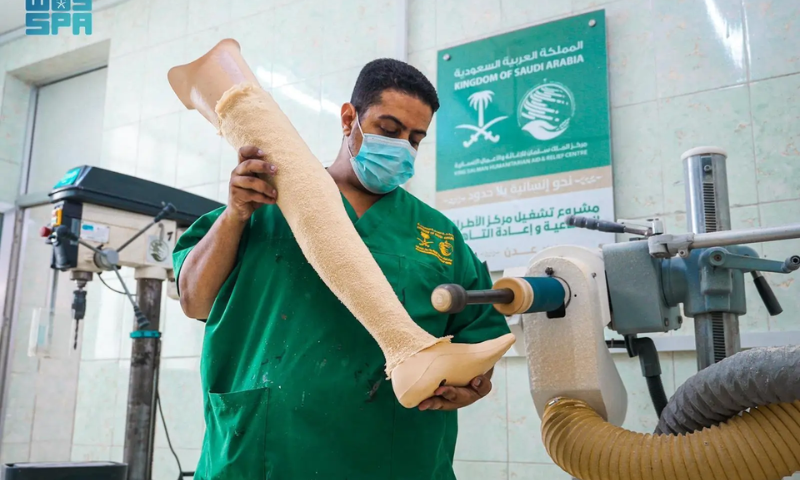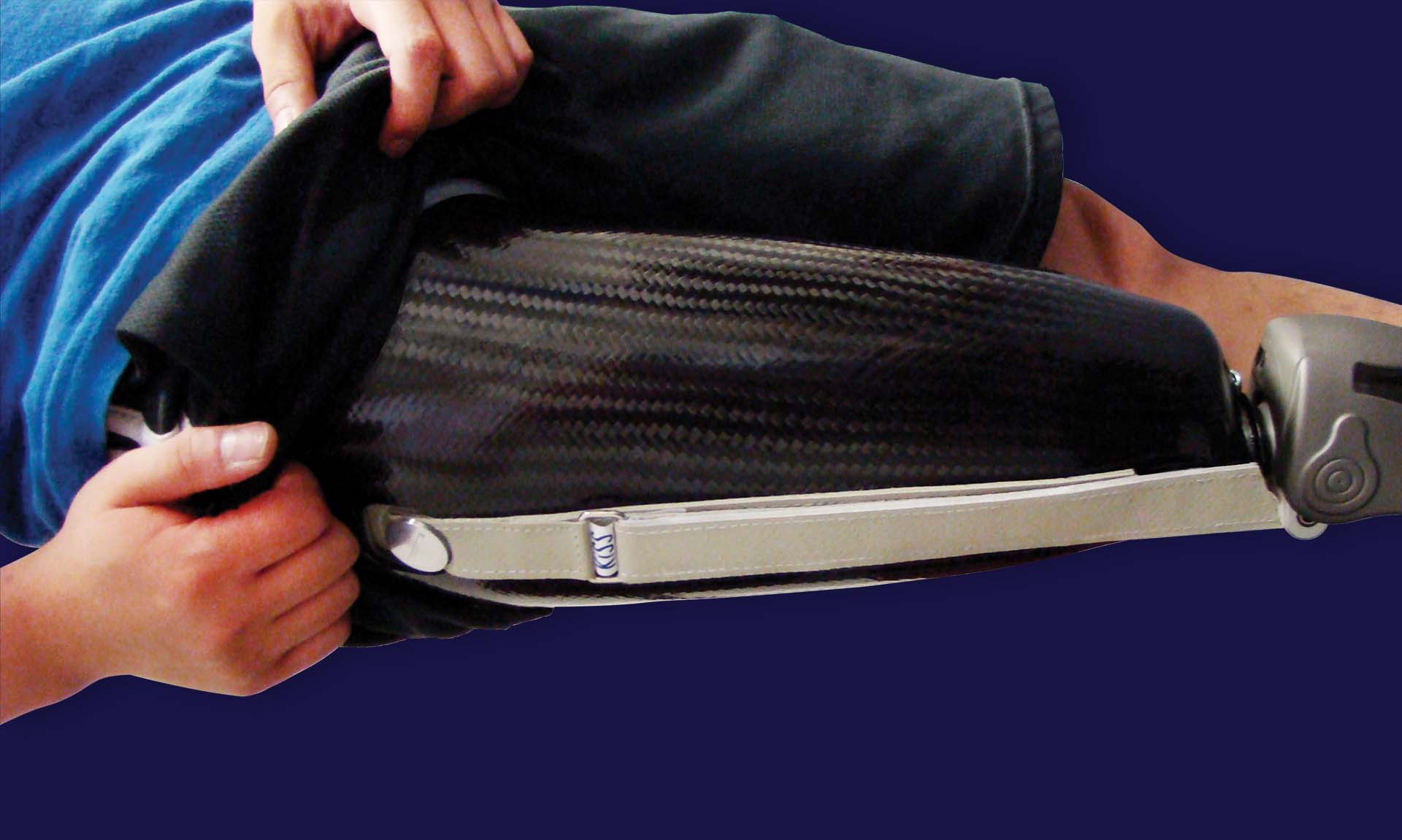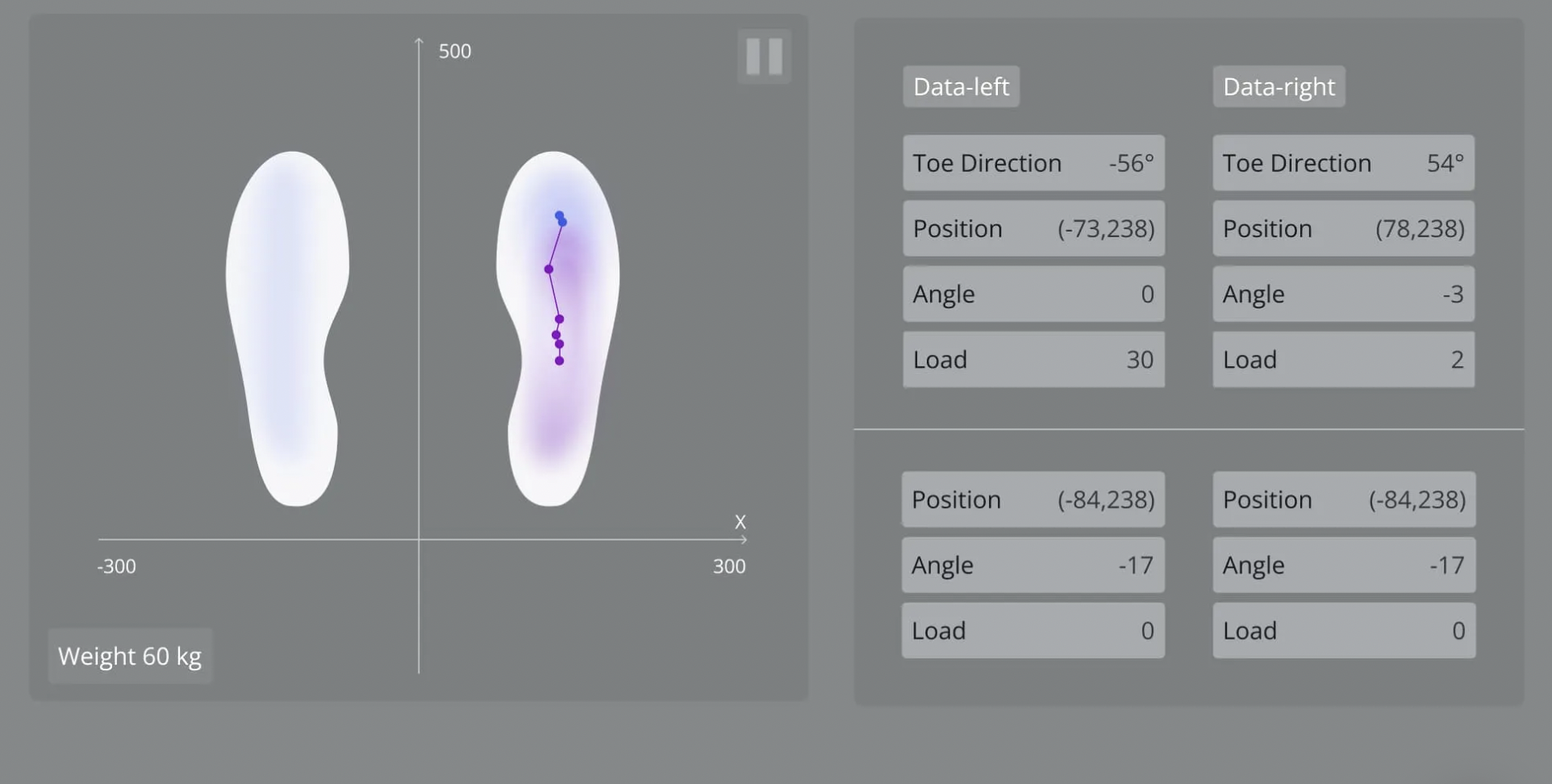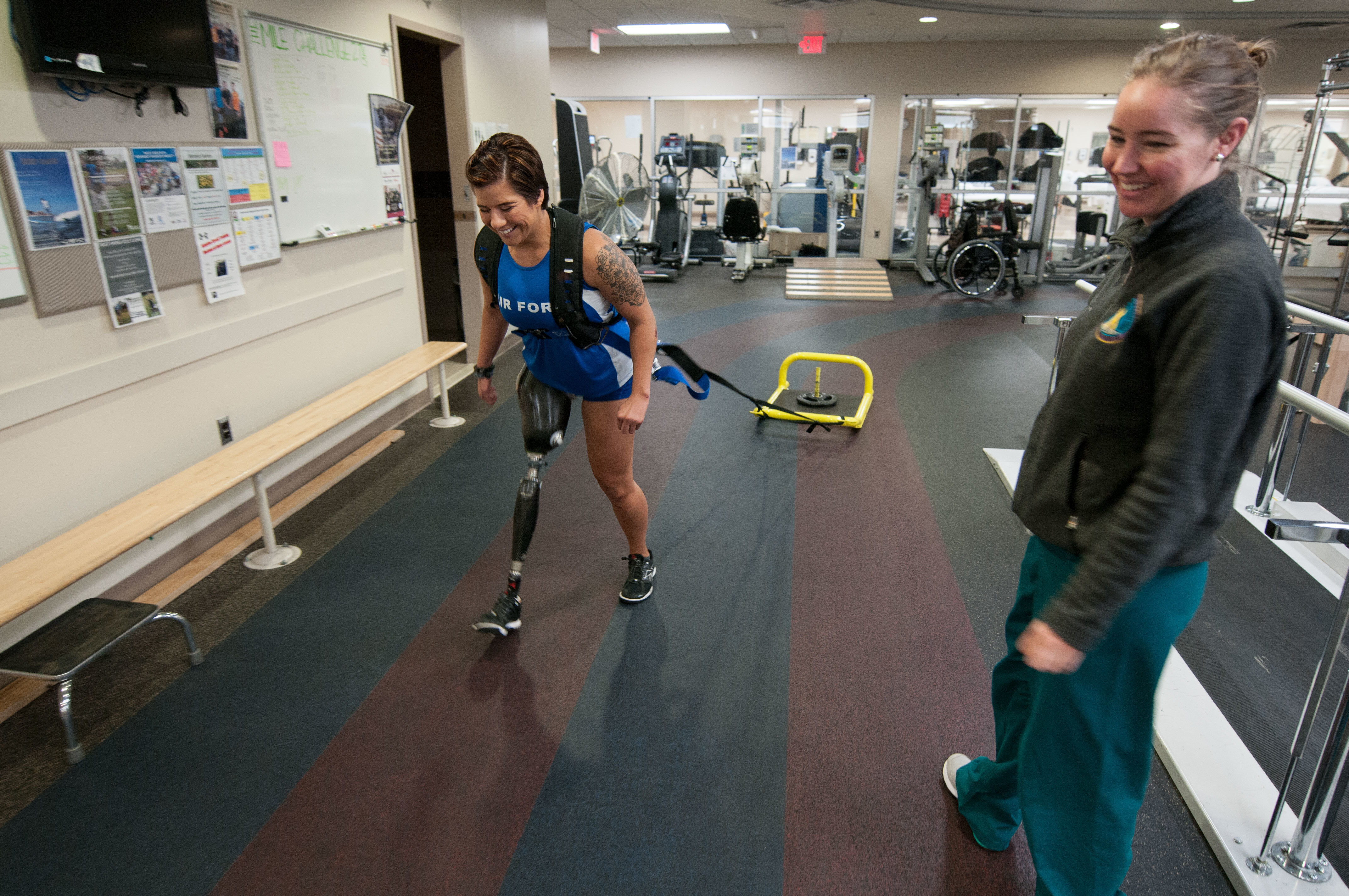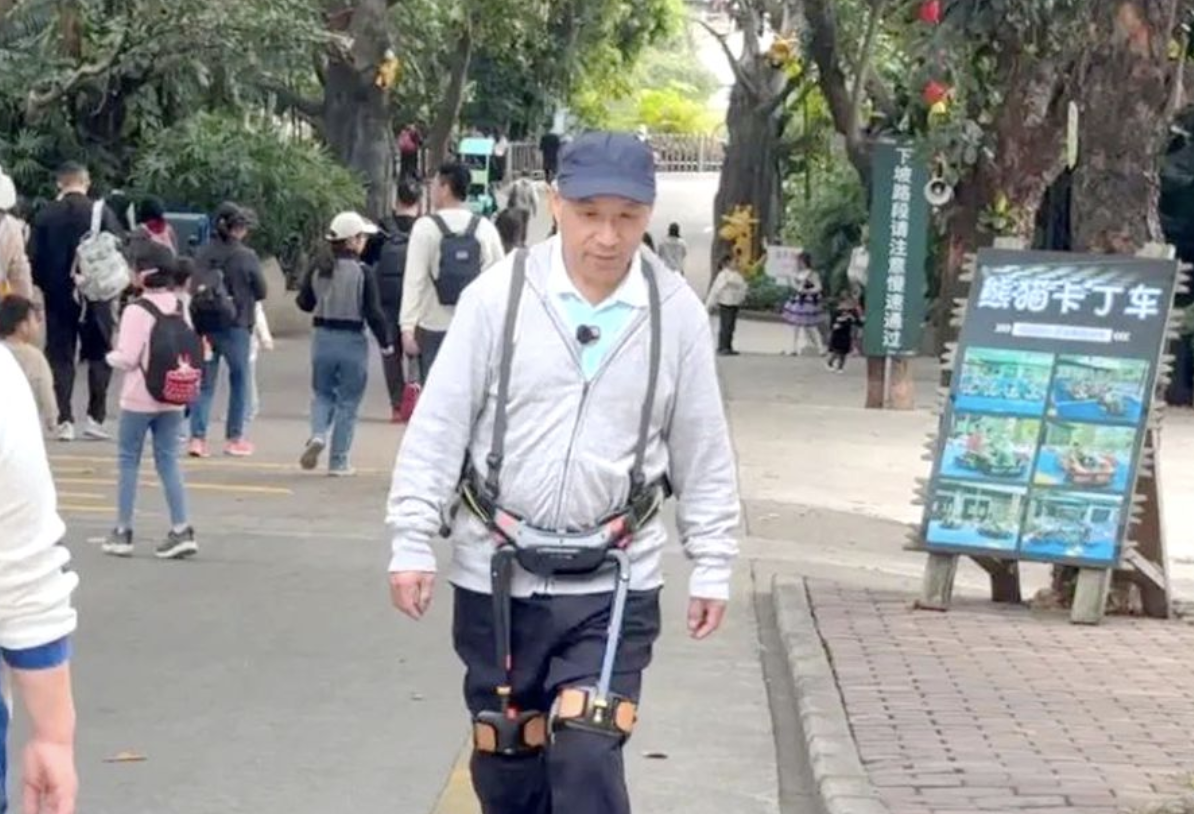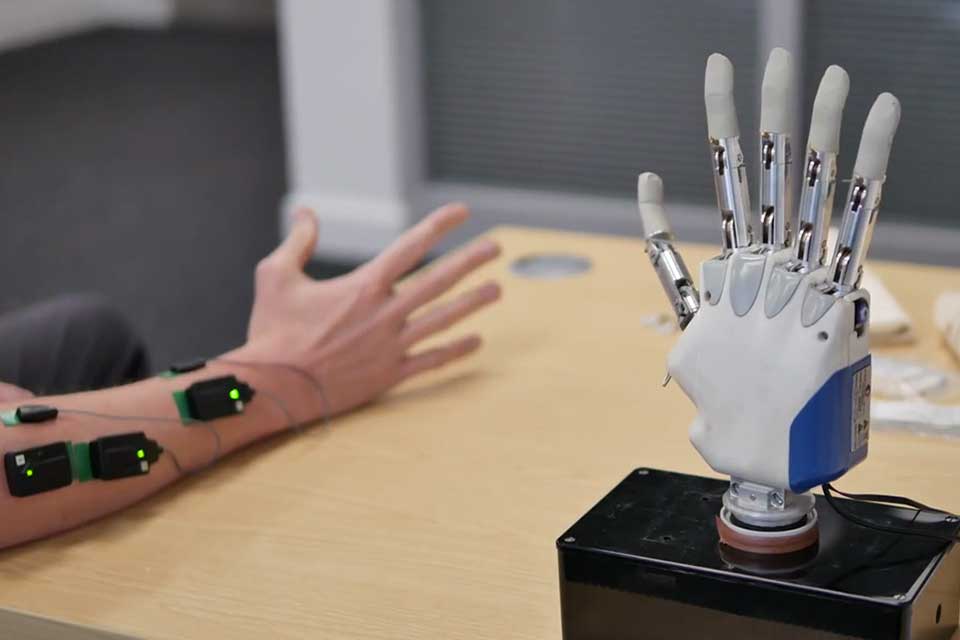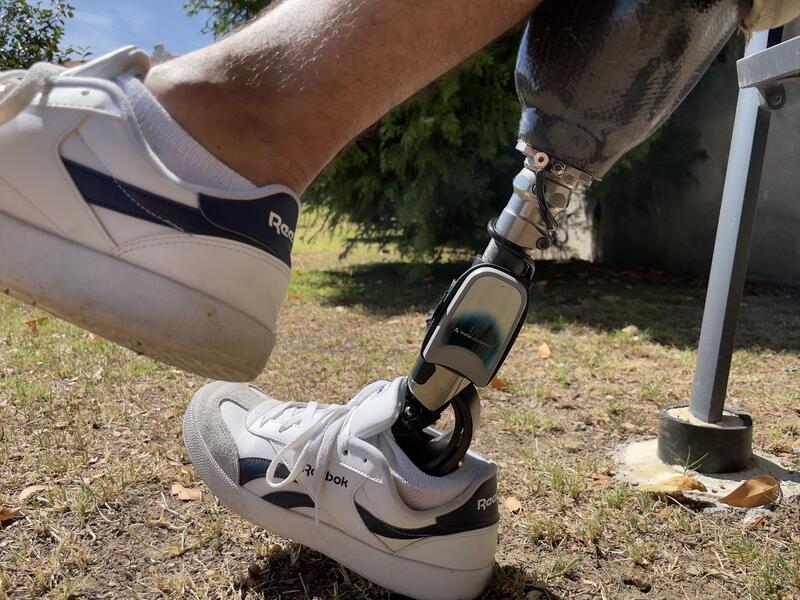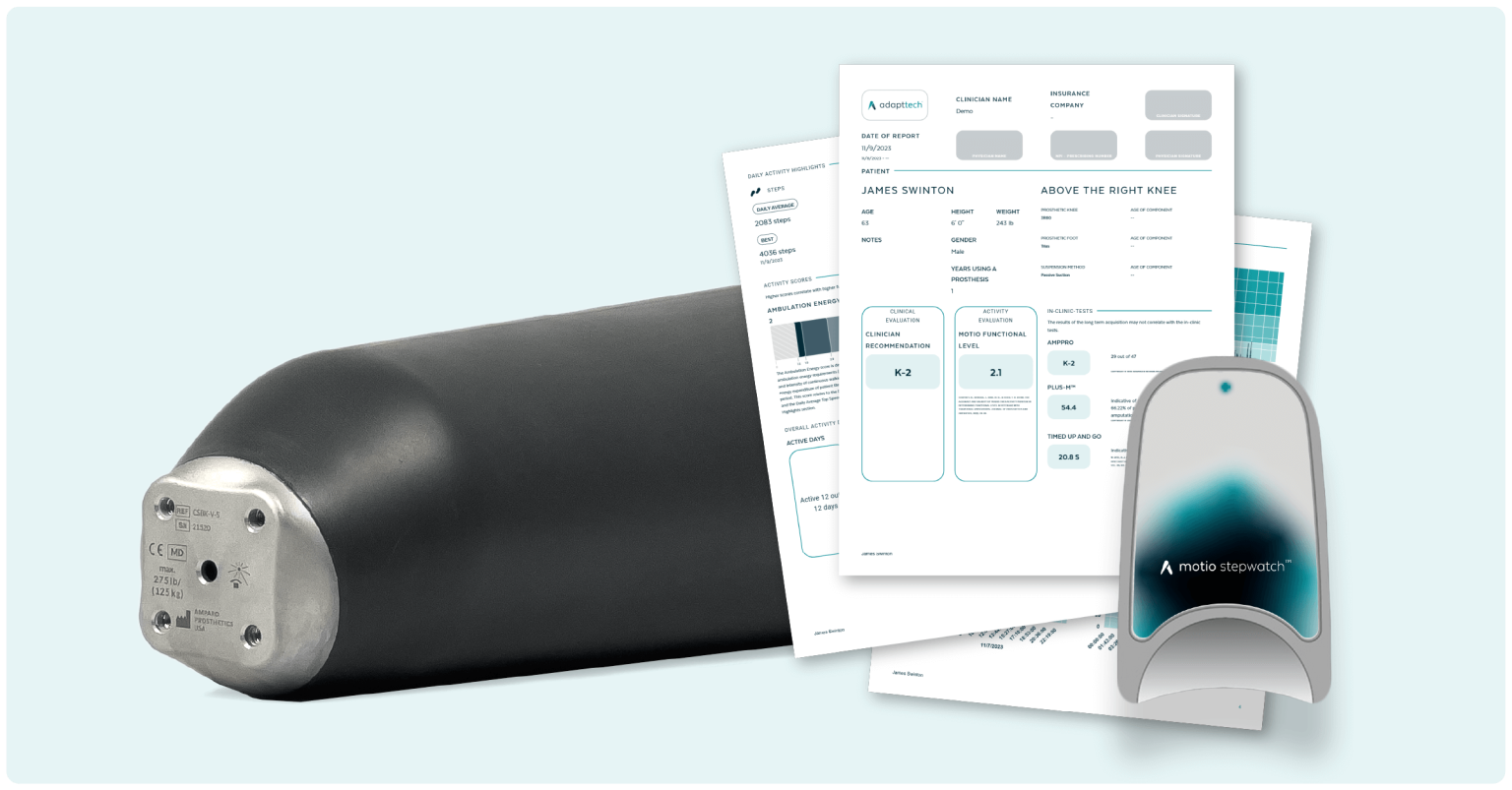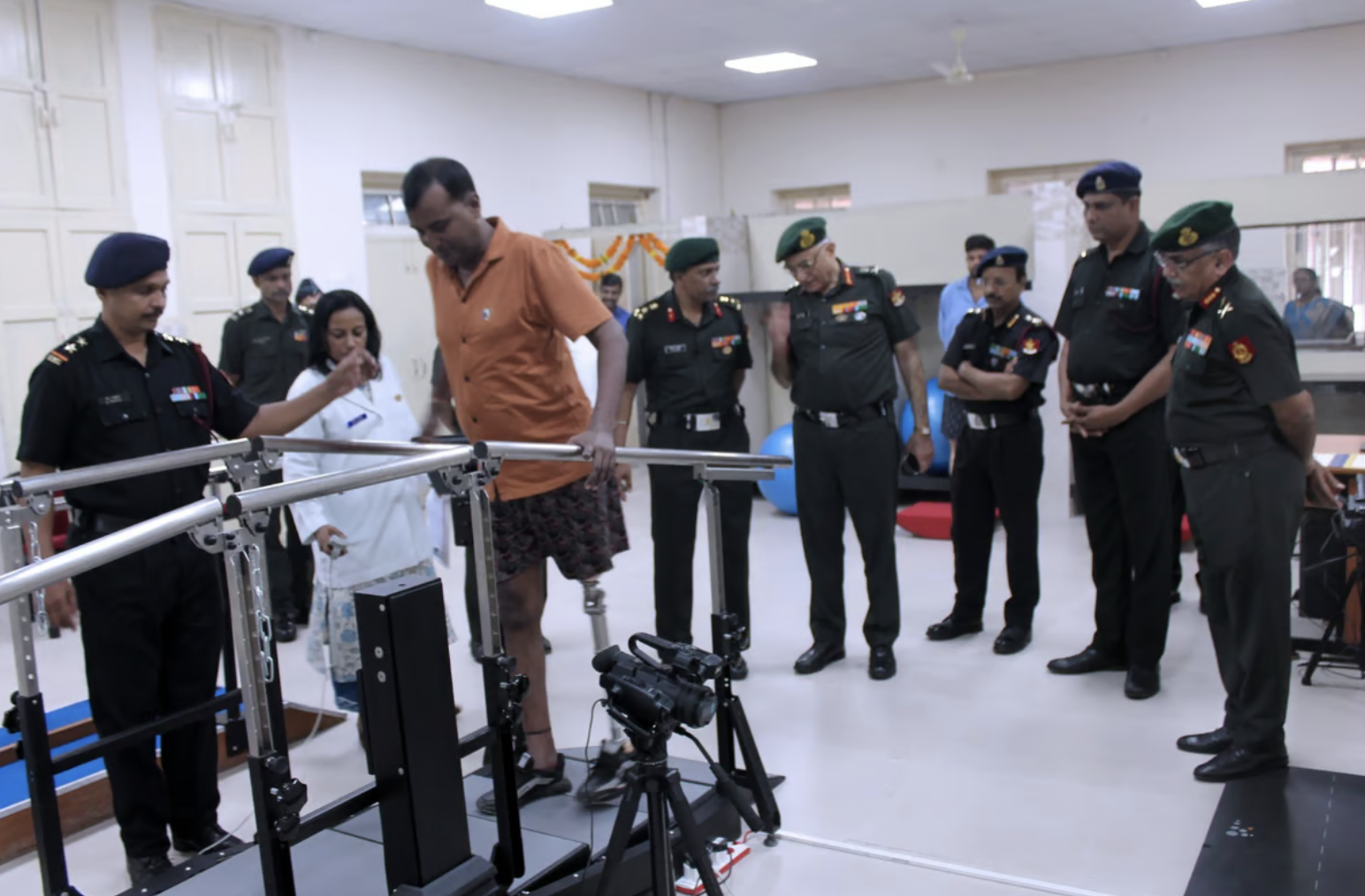By Vanessa Carvalho, Alex Dahinton and Frederico Carpinteiro
The Power of Real-World Evidence

-
Objective Assessment: Traditionally, functional assessments often rely on subjective evaluations. This is particularly challenging in difficult environments such as during humanitarian operations and when medical staff are overstretched. With Adapttech’s Motio Stepwatch, clinicians access objective, quantifiable data, capturing an accurate picture of prosthetic usage.
-
Real-World Data: the system allows clinicians to understand the mobility potential of their patients. For instance, Patient 1 (Figure 1), fitted with a below-knee prosthesis, averaged 2.9 km per day and reached a continuous 1,048-meter distance - vital in an environment where it is not uncommon for individuals needing to walk long distances on rough terrain just to access water. On his very first day, Patient 1 recorded a total of 8,326 steps, equivalent to almost 5 kilometers. This level of daily mobility in real-world settings confirms the capability of the prosthetic solutions that are being used in Gaza and provides measurable proof of this patient’s progress.

Figure 1 - Patient 1 Activity Highlights.
-
Personalized Care: Patient step data analysis enables clinicians to adapt care to the survival needs of the individual and their family. This may involve the urgent need to walk to a safer place or reach a food or water distribution point. For instance, Patient 2 demonstrated highly variable activity over a 10-day period (Figure 2), mirroring with his complex health needs that lead to frequent hospital visits. This information allowed MASU clinicians to adjust his rehabilitation plan, accounting for fluctuations in his residual limb and making necessary adjustments to his prosthesis.

Figure 2 - Patient 2 Daily Step Data.
-
Evidence-Based Decision Making: The data supports well-informed decisions regarding prosthetic rehabilitation and clinical care strategies. Patient 3’s journey has been marked by significant physical limitations due to missile fragments still embedded in his limb and chest.
He began walking on his first day under MASU’s care, despite substantial pain and difficulty. Though his activity data in Figure 3 shows lower step counts overall compared to Patient 1, the results indicate clear potential, particularly on days when he received gait training from MASU clinicians. On these days, he was able to reach 106 steps per minute (high intensity activity) – a promising above-average cadence for a bilateral amputee in the early stages of prosthetic rehabilitation.
Motio Stepwatch insights revealed that while this patient’s progress might be slower compared to a unilateral amputee, his rehabilitation can be continually optimized through targeted interventions such as enhanced gait training and targeted physical therapy. This data-driven approach enables the MASU team to better support Patient 3’s unique challenges, providing a pathway for future progress as he transitions to hospital-based therapy focused on improving balance and strength.

Figure 3 - Patient 3 Daily Activity Highlights.
Adapttech Technology: A Game-Changer in Harsh Environments
MASUs’ deployment of Adapttech’s Motio Stepwatch technology proves to be particularly appropriate and resilient in the demanding conditions of a conflict zone such as Gaza. The robust nature of Adapttech’s Motio Stepwatch technology has demonstrated:
-
Resilience in Crisis Zones: The Motio Stepwatch system has been utilized in harsh environments, offering reliable data where medical infrastructures are limited. Patient 1’s consistent usage of his prosthesis for essential walking distances reflects the robustness of the system in the face of physical and environmental effort. This patient averaged 2.9 km per day, including multiple high-intensity activity periods that revealed a strong level of endurance and adaptability despite the surrounding difficulties.
-
Quick Objective Data for Clinicians: With limited time for follow-ups, the Motio Stepwatch provides rapid access to step data, allowing clinicians to efficiently evaluate and respond to potential patient needs. For Patient 1, daily walking data demonstrated his proactive use of the prosthesis - necessary for survival - affirming MASU’s impact on his quality of life. His high-intensity data i.e. averaging 35 minutes per day at over 81 steps per minute, underscores the patient’s ability to perform consistently in difficult conditions. (Figure 4).

Figure 4 - Patient I Overall Activity.
-
Resource Optimization: In resource-limited environments, real-world data helps in resource allocation and prioritizing interventions for those with the most immediate needs. Patient 3’s data, for example, helped allocate targeted resources for his medical condition – by adjusting physical therapy. By capturing high-resolution data, Adapttech’s system enables MASU clinicians to validate functional assessments and inform decisions based on real-world use cases, marking a change on more precise and responsive prosthetic care.
This technological adaptability in challenging situations highlights that cutting-edge prosthetic solutions can, in fact, be practical, dependable, and significant in emergency situations.
Enhancing MASU Effectiveness with Step Data
Integrating Adapttech technology has augmented MASU’s capabilities, enabling rapid, responsive, and individualized care. Real-world data informs each aspect of patient interaction, from initial fitting to follow-up. In particular, the Motio Stepwatch system facilitates quick assessments, for example in prosthetic training that align with MASU’s need to deliver efficient, high-impact services to as many patients as possible in constrained time frames. It can also be used to help drive further innovation in prosthetic design and fitting.
For example, Patient 2 demonstrated an irregular activity (days with no step data detected) due to frequent hospital visits. However, the data showed clear peaks in overall steps taken and cadence (up to 94 steps per minute) on days he was not restricted by his medical condition (Figure 5). challenges and achievements

Figure 5 - Patient 2 Daily Activity Highlights.
Adapttech’s technology also increases patient’s motivation and engagement with rehabilitation. According to his prosthetist, Patient 1, mentioned an increased motivation to improve his gait after receiving his prosthesis and starting the analysis with the Motio Step Watch System. During the acquisition, he demonstrated a regular daily activity rhythm, particularly around 4:30 p.m. when his step intensity consistently increased (Figure 6). Moreover, when he had the opportunity to review his results, he was able to visualize with objective data how well his rehabilitation was going, and the progress he has made. This level of individualized care underscores the MASU initiative’s commitment to long-term patient success.

Figure 6 - Patient 1 Detailed Activity.
Initial outcomes from patients utilizing Adapttech devices in Gaza underscore the technology's significant impact on patient rehabilitation, resilience, and functional capacity. Adapttech data has revealed measurable improvements in several key areas.
-
Increased Daily Activity: Patient 1’s post-fitting data showed a significant increase in step count, achieving levels that exceeded typical expectations for new amputees ( Figure 1) This level of daily mobility in real-world settings confirms the capability of prosthetic solutions like the Amparo Confidence Socket and provides measurable proof of this patient’s progress. Additionally, Patient 2o’s activity data revealed valuable insights into his functional potential. On active days, he achieved a top speed of 1.07 m/s and a peak cadence of 94 steps per minute (high intensity). These outcomes would have gone unnoticed without this technology (Figure 5).
-
Improved Patient Functional Outcomes: Patients achieved functional levels higher than their initial clinical assessments. For example, Patient 2 was initially assessed at K2 but reached a 3.2 (K3 mobility level) in the final step data analysis (Figure 7). This level of detail offers a reliable basis for identifying and supporting individual progress and highlighted the gap between real-world performance and initial clinical expectations.

Figure 7 - Patient 2 Clinician Evaluation and Motio Functional Level.
-
Optimized Cadence and Gait Patterns: Both Patient 2 and Patient 3 exhibited high cadences and better gait patterns during active days, showing the adaptability and responsiveness of MASU’s approach.
Bridging the Gap in Multidisciplinary Care
The integration of Adapttech technology has revolutionized the way MASU clinicians collaborate across disciplines, encouraging a shared understanding of patient progress through objective data.
-
Shared Objective Data: Real-world data reports provide consistent language for rehabilitation care teams, allowing for coordinated efforts in complex cases
-
Remote Collaboration: For geographically dispersed teams, shared data improves decision-making and care adjustments. For example, the collected data for Patient 2 helped his care team adjust the rehabilitation plan to better support his unique needs
-
Education and Training: Data analysis strengthens MASU’s clinical training, standardizing best practices and expanding local expertise in prosthetic care.
-
Improved Communication: Analyzing step data helps improve patient communication and engagement. Patient 1’s enthusiasm for testing and using his prosthesis is motivated each time he sees objective data tracking his improvement, reinforcing continuous progress. This approach empowers patients, encourages clinicians, and creates a shared vision of recovery that drives the MASU mission forward.
Looking Ahead: The Future of Prosthetic Care
The successful application of Adapttech’s Motio Stepwatch in Gaza not only re-defines the standards for prosthetic care in crisis zones, but also points to a promising future where advanced, data-driven technology becomes the norm for amputee care worldwide. As real-world evidence continues to accumulate, its potential to shape future prosthetic solutions, inform healthcare policies, and democratize high-quality care grows exponentially.
-
Global Accessibility: Adapttech technology has the potential to extend high-quality prosthetic care to underserved regions globally, making advanced solutions accessible beyond traditional healthcare systems.
-
AI-Driven Insights: As more patient data is collected, machine learning algorithms can yield new insights into activity patterns and rehabilitation success, tailoring future treatments to individual needs
-
Personalized Manufacturing: Real-world data could inform prosthetic design and manufacturing, resulting in devices that are better suited to individual lifestyles and activity levels.
-
Policy and Funding Impacts: The robust evidence collected could influence funding decisions and healthcare policy, ensuring broader access to prosthetic technologies that significantly enhance quality of life.
Conclusion
Adapttech’s Motio Stepwatch, integrated into the MASU initiative in Gaza, has set a new benchmark for real-world evidence in crisis-zone prosthetic care. This data-driven approach not only enhances individual rehabilitation outcomes but promotes resilience, adaptability, and collaboration within care teams. By providing amputees with personalized, meaningful insights into their own progress, MASU and Adapttech are empowering individuals to reclaim their mobility and autonomy, regardless of the challenges they face.

